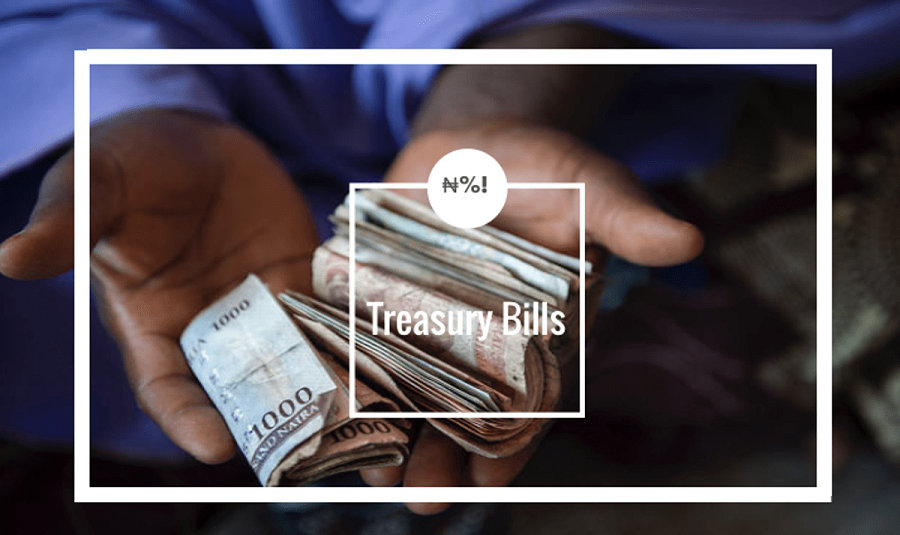I wrote this for myself as a guide to ensure that I follow the steps below. But then it struck me that I have peers who are also struggling and confused about how and what to invest in while young, in order to ensure financial security at old age.
So I decided to share. Below are some ideal investments to consider when you are in your 20s and 30s.
Invest in Yourself
- Reduce watching TV/News: The news doesn’t change — government borrowing, election manipulation, killings, wars, underperforming economy, celebrity gossip, and the list goes on and on. All these do not make me knowledgeable.
When you reduce TV and watching news, you become less anxious and less stressed.
2. Cut down on social media: The average person touches his phone more than 100 times a day, due to addiction to Whatsapp messages, facebook, Twitter, etc. Half of that time would have been better spent reading books, creating art or something productive.
- Read fiction and non-fiction every day.
- Reduce alcohol and limit sugar.
- Eat twice a day.
- Avoid gossip.
- Sleep an hour earlier and wake up an hour earlier.
A salary is the first major source of savings and investments, so you must nurture that source properly to help jumpstart you into other avenues for enriching yourself.
Whatever career you are in, develop more skills, and take more courses. Some of these courses are offered online at cheap prices. If you are an employee, consider taking a professional certification exam.
Google people at the pinnacle of your field and research what made them get to the top. It could be their negotiation, management, psychological, or impeccable writing skills.
Investing in yourself is the most important decision you will make, as the more skills you have, the more ideas you have to aid creativity, and end up as money making and/or value adding machines.
Two quotes by Ray Dalio have stuck with me:
- “Do not let your income rise faster than your productivity, because you’ll eventually become uncompetitive.”
- “Do all that you can to raise your productivity, because in the long run, that’s what matters the most.”
To be honest, sometimes I break the rules listed above, but I notice that I have been most productive when I follow these rules.
Exchange Traded Funds (ETFs)
Majority of individual investors will not make money investing in the stock market due to 2 major reasons:
- Not everyone has the wherewithal and resources to research and analyze the market properly.
- It is difficult to time the market – knowing the right time to buy or sell.
Why Exchange Traded Funds? An ETF is simply a security that tracks an index and trades like an individual share on an exchange. It is a fund that includes the collection of assets, e.g. stocks, bonds, gold, etc.
Investing in an ETF presents you with the opportunity to buy a selection of assets you may prefer instead of picking those assets individually.
For example, if Mr A has dreams of investing in companies like Google, Exxon Mobil, and Apple, but doesn’t have the money to invest individually in any of these stocks due to the high share prices they command, he can simply buy an S&P 500 ETF that tracks all these companies. If any of these companies don’t perform in a particular period, you still have hundreds of others which can balance out the risk of the total portfolio.
There are several thousands of ETFs globally; some invest according to geographic locations – ETFs that track the biggest companies in USA, China, etc.; ETFs that invest in a mix of stocks and bonds; ETFs that invest in gold, etc.
Two major advantages which ETFs offer are: an opportunity to diversify your portfolio and low costs of investing.
Most experienced investors recommend that you continually invest a small amount of money consistently over a number of years.
You can invest in ETFs available on the Nigerian Stock Exchange, or better still, diversify your portfolio by investing outside the shores. I have previously written on how to make money investing in foreign stock markets.
Treasury Bills
Treasury Bills are very important and necessary investments for every type of investor, and there is no better time to cultivate the habit of buying Treasury Bills regularly than when you are in your 20s and 30s.
Treasury Bills are short-term government guaranteed debt instruments issued by CBN on their behalf to finance expenditure and also control money supply. There are 3 tenors: 91 days, 182 days and 364 days.
We all have bills to pay (professional exams coming up in a few months, children’s school fees, weddings, vacations, etc.) and you can invest the present cash you have in Tbills, depending on the period when you will need the money.
There is a concept in finance called Asset and Liability Matching (ALM), which basically involves buying an asset (in this case Treasury Bills) in order to be able pay off a future liability (what you need your money for in the future).
Some advantages of Treasury Bills are:
They offer decent interest rates, so you get to make money.
They are risk-free, which means your principal is guaranteed, as it is backed by the full faith and credit of the Federal Government.
Growth stocks & dividend stocks
Being in your 20s and 30s is an opportunity to make risky bets, because if you lose your money at this stage you still have time to recover. Investing in stocks offers a good avenue to put part of your money into a high risk-high reward venture.
Growth stocks are simply stocks that are expected to grow at significantly higher rates than the industry average. These stocks generate more sustainable positive cash flows and revenues than their peers.
I wrote this article on how to spot growth stocks in the Nigerian stock market.
Dividend stocks, on the other hand, are usually stocks of companies that are financially stable and mature, which means the share prices are less volatile than growth stocks.
Dividend stocks should be included in your portfolio at a young age as they provide opportunities to earn income (no matter how little) consistently over a long period of time, provided the companies keep performing well.
Business
If you have the talent and passion for something, you can start now. It doesn’t mean you have to quit your job immediately; you can maintain your day job while you work gradually on your business idea.
The thing about starting a business is that the rewards are huge; if successful, you get to reap huge financial rewards whilst having the freedom and control over your own time.
You have nothing to lose starting a business at this age:
- The business performs well and you make money
- The business fails and you gain lessons on what to avoid in your next venture.
I wish you all the best in your investing endeavours.














.gif)







Tnx for the information. But how can one go into treasury bills and ETFs investment when one has no idea about it.
Hi Hope, surf through nairametrics.com, there are tons to resources to understand these securities.
I noticed you didn’t mention mutual funds. I more profitable to choose Tbills over mutual funds?
Mutual funds are almost like ETFs… Mutual funds share same advantage just like ETFs.
Comment:thanks for the information but please can you enlighten me on mutual funds as somebody just raised
TBills are more profitable than Mutual funds. He mentioned mutual funds as ETF
Thanks for the info but how can one go into treasury bills and ETFs investment when one has no idea about it and how do you engage in such investment through web
Hi Kayode, Treasury Bills are auctioned by the CBN every fortnight. To be able to participate you need to have the minimum required capital or contact your bank for their pooling system for Tbills, to learn more about Tbills visit this link https://nairametrics.com/2018/06/28/what-is-treasury-bills-in-nigeria/. For ETFs, they are traded on the floor of the NSE, you can read more about ETFs here https://nairametrics.com/2018/11/01/this-is-how-much-investments-in-exchange-traded-funds-in-nigeria-cost/.
I have the passion and talent for business..my major problem is fear to start.
Hi, I understand your fears but not taking a risk in itself is risky.
Thanks for this opportunity….
This is loaded with vital information! Many thanks for sharing 🙂
Thank sir
Nice one
This information is very important not only for the 20s and 30s but to all. Retirees who have money can also benefit from the ideas.
ETFs are they also known ‘mutual share index’ e.g S&P 500 like in the U.S?
Thanks for this ??
Thanks so much for this, have always had interest in Treasury Bill, how much is the least amount one can invest it?
Thanks for the write up. What about the FGN savings bonds?
I appreciate the piece, but hw abt bit by bit investments in long term insurance policies, that you can fall back on at old age?
But before you do that you have to look for insurance companies that are doing very well. investment here are relatively less risky or low risk.
But the protection on the policies, if it is life policies, would be of great benefit for you at old age or for your beneficiaries if the inevitable in life happens. One insurance doing very well is Custodian Life Assurance Ltd a subsidiary of Custodian Investment Plc.
Nice one, highly educative
Really nice, but how much can one start with and how much should the person be expecting in return?
Thanks for the information. However, all the highlighted process are mainly Slowlane methods of trading youthful age for old age and that’s what is referred to as SCRIPTED Operating System. I will only encourage being an entrepreneur.
Instead of encouraging trading today for tomorrow; why can’t we encourage being an entrepreneur?
What’s Slowlane? Only if you care to know!
The Slowlane is the presumption that decades of gainful employment circumscribed by thrifty living, tortuous saving, and regimented stock market investing will somehow make you a happy millionaire. The financial priesthood and the mainstream mouthpieces have made it clear: if you want a secure retirement and a millionaire portfolio by sixty-five, sacrifice now and put those sacrifices into the stock market.
Thank you
I invested in shares of DAAR and transcorp in my twenties yet to see change after 20yrs
The contents in this post are astounding. Besides being a great read, the lessons here are tremendously valuable.